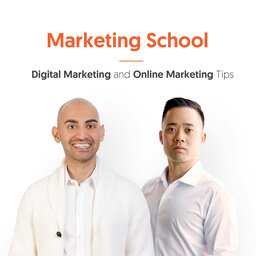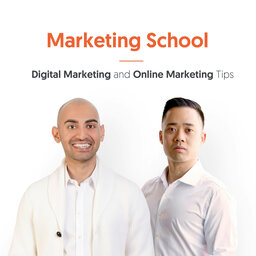Why there will never be another Oprah, and Frame.io's $1.3B startup lessons
In episode #2740, we explore the changing landscape of fame and attention in the digital age, why you should reinvent yourself to stay relevant, the role of CEOs in being hands-on and involved in the details, and why extensive customer research is necessary for successful decision-making.
Don’t forget to help us grow by subscribing and liking on YouTube!
Check out more of Eric’s content (Leveling UP YT) and Neil’s videos (Neil Patel YT)
TIME-STAMPED SHOW NOTES:
- (00:00) Today's topic: Why there will never be another Oprah, and Frame.io's $1.3B startup lessons
- (01:15) Why there will never be another Oprah
- (10:16) Frame.io's $1.3B startup lessons
- (26:00) That’s it for today! Don’t forget to rate, review, and subscribe!
Go to https://www.marketingschool.io to learn more!
Leave Some Feedback:
- What should we talk about next? Please let us know in the comments below
- Did you enjoy this episode? If so, please leave a short review.
Connect with Us:
- Single Grain << Eric’s ad agency
- NP Digital << Neil’s ad agency
- X @neilpatel
- X @ericosiu
Marketing School - Digital Marketing and Online Marketing Tips
Neil Patel and Eric Siu bring you daily ACTIONABLE digital marketing lessons that they've learned th…Social links
Follow podcast
Recent clips

Mastermind Dinners: LeadGen That Actually Works in 2024
16:08

30M vs 500 Views - The One Change That Made All The Difference
12:35

AI concierge will affect dating - implications for business, Perplexity's AI-generated podcast, OpenAI dissolves team focused on long-term AI risks (less than one year after announcing it), Why swarming is killing SEO, and Ag1 spent $40m on podcasts
10:47
 Marketing School - Digital Marketing and Online Marketing Tips
Marketing School - Digital Marketing and Online Marketing Tips